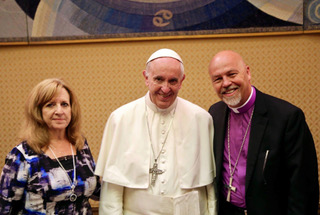Galatians 6:9 reminds us, “And let us not grow weary while doing good, for in due season we shall reap if we do not lose heart.”
Let’s be real—doing good can be downright exhausting! The initial zeal may dwindle as we find ourselves tirelessly sowing seeds of kindness, seemingly without immediate returns. It’s human to feel weary, especially when the results we hope for don’t materialize as quickly as we’d like.
Life’s demands, from family and work to school and ministry, can add to the fatigue. At times, we come perilously close to throwing in the towel, not intending to quit but simply to take a break. Yet, that break often extends longer than anticipated, leaving us in a cycle of deferred good deeds.
Reflecting on my journey, I realized that the core issue wasn’t the act of doing good but my relationship with time. Time changes, transitions, and adjustments can be as disorienting as daylight savings, disrupting our mental and emotional equilibrium. It dawned on me that there is a divine battle for our time—a battle we must navigate consciously.
Understanding that God is the Creator of time and seasons, as mentioned in Genesis and Daniel, became a pivotal revelation. Time is not our enemy; it’s a gift—a series of moments, days, weeks, and seasons pregnant with the eternal. Every moment carries the potential for the goodness of God to unfold.
The challenge lies in managing time wisely. Paul’s exhortation to “redeem the time” is a spiritual discipline, urging us to make the most of every opportunity. Like the sons of Issachar who understood the times, we must discern the purpose in each season.
Acknowledging the limited nature of our time on Earth is crucial. As Job asserts, our days are predetermined, and we have a set time frame. This realization prompts an honest evaluation of our lives before leaping into a new year. How did we manage our time? Were we distracted or did we learn valuable lessons?
Some may be relieved to bid farewell to a challenging year, but it’s essential to learn from it and move forward. Assessing opportunities in the upcoming year becomes paramount. Time management becomes the linchpin for experiencing the fullness of God’s plan for our lives.
Ask yourself:
- Do you know your purpose?
- Have you made plans and set goals?
- Can you see the opportunities in this time?
Remember, when you fail to plan, you plan to fail.
In contemplating the future, recognize that God is a planner. Jeremiah 29:11 attests to His good plans for us—plans that provide hope and a future. If you doubt His intentions for your success, pause and seek His guidance.
For years, I fell for the illusion propagated by success gurus—that effective time management would solve everything. The metaphor of fitting big rocks into a jar felt exhausting. It took time to understand that not all the rocks were mine to carry. Realizing that I couldn’t do everything was a humbling revelation.
Instead of trying to force every rock into the jar, I started a “rock garden.” Weariness often stems from attempting too many things in a limited time. As we approach 2024, take an honest look at the rocks you’re carrying. Be discerning, be honest, and start fresh. Your time is a precious gift—use it wisely.


